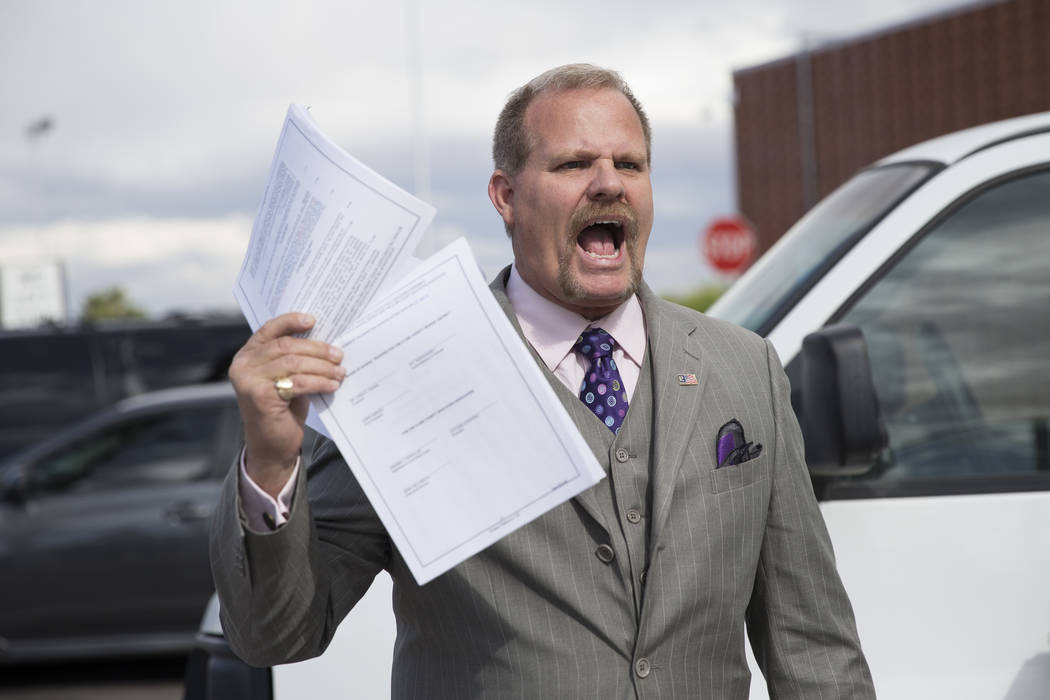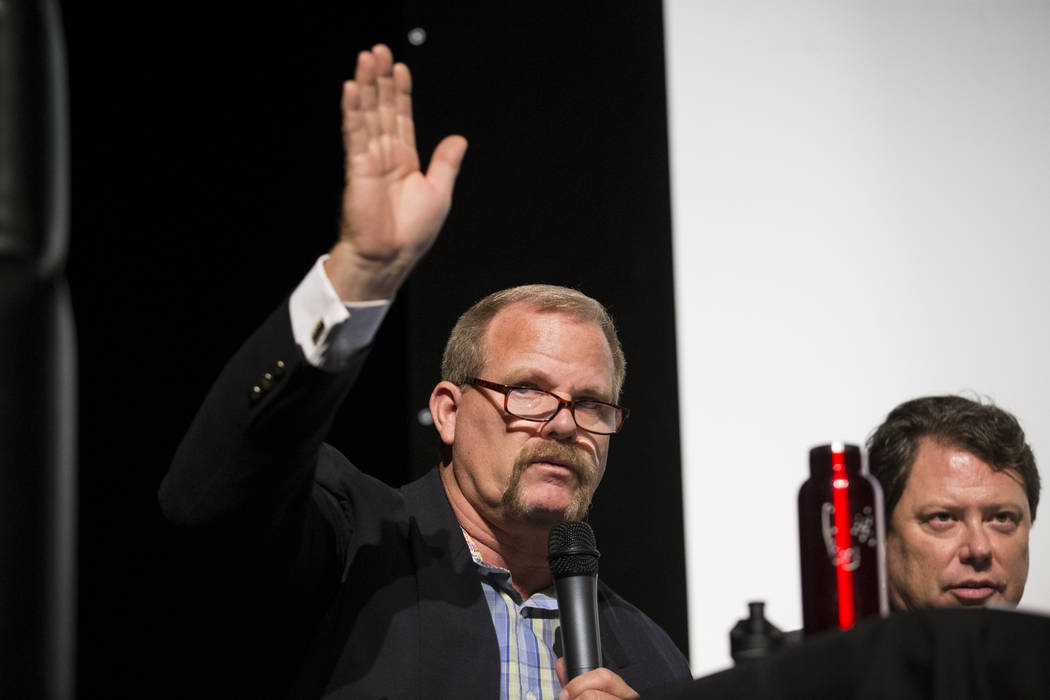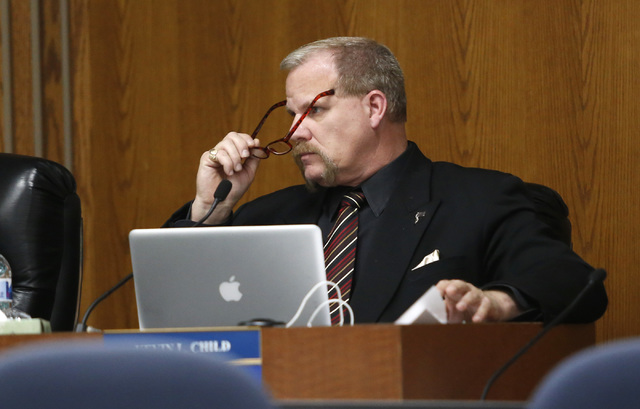CCSD survey reveals split on use of social media, texting
When it comes to electronic communication between Clark County School District staff and students, what crosses the line?
Based on 1,666 responses to a survey released this week on the district’s proposed policy on use of social media and other forms of electronic communication that question continues to divide public opinion.
The survey, part of an effort to crack down on sexual misconduct between district employees and students, found that respondents — about 76 percent of whom were parents — were generally supportive of the draft policy. A majority agreed or strongly agreed that it establishes clear guidelines for employees and guidance on when and how staff should report inappropriate conduct.
But the results also reveal a divide when it comes to texting and social media. Many parents don’t want any staff texting their children at all, while numerous teachers say such contact is vital for a supportive education.
The conflict was clear in open-ended comments included in the responses.
‘A sledgehammer to kill a gnat’
“Why are you allowing, even with restrictions, teachers or representatives to electronically contact students outside of school hours?” wrote one parent. “As a parent, I would be livid if that happened.”
On the other end, many teachers argued for a need to communicate with their students for field trips, homework assignments or class announcements.
“This regulation will prevent teachers from sending out these legitimate messages while doing nothing to stop predators,” one comment reads. “You’re swinging a sledgehammer to kill a gnat on a glass window. You’ll definitely break the window, but the gnat will probably just fly away.”
The policy is an outgrowth of a wave of public concern over inappropriate relationships between staff and students that erupted over the past year, when 13 CCSD employees were arrested on sexual misconduct charges. The issue was examined in a recent Las Vegas Review-Journal series, Broken Trust.
New laws passed this past legislative session should address some concerns — schools cannot enter any contracts that suppress information relating to investigations of an employee’s suspected sexual misconduct. The district must also now conduct more extensive background checks.
Minor changes based on feedback
Assistant Superintendent Tammy Malich said the district has made minor changes in the initial draft policy and regulation in response to community input from surveys and feedback given at a public roundtable in June. The Clark County School Board may make more changes at a work session Aug. 2 before possibly adopting a policy Aug. 10.
“I was a little disappointed at the community roundtable with the low participation — I absolutely was expecting hundreds of people,” she said. “But then when I went in, as I was monitoring the survey results, I was very excited that people were reading and commenting.”
Malich said the regulation does not explain the ramifications for violating the rules, because discipline is progressive and may vary depending on the case.
Efforts to crack down on the problem also could have unintended consequences.
For example, one new law requires all regular volunteers to undergo background checks, regardless of whether they’re supervised or not. Since volunteers will be required to pay the $60 cost of the checks, that could strain the district’s volunteer pool, she said.
“I’m all about protecting the kids, but my fear with that is we’re going to send a message that we don’t want people volunteering in our schools, and that is not our intent,” Malich said.
Some teachers also fear unintended consequences if their legitimate communications run afoul of the new policy.
But Trustee Kevin Child, who served on the working group that developed the policy, played down the possibility that educators will unknowingly cross the line.
“If a kid’s calling you and thinking of taking their life, oh my gosh, take the call and call the right authority,” he said. “If you’re saving the kid’s life, you’re not going to get in trouble. It’s the deviant stuff that you’re going to get in trouble for.”
Contact Amelia Pak-Harvey at apak-harvey@reviewjournal.com or 702-383-4630. Follow @AmeliaPakHarvey on Twitter.
Rules under draft policy
— Prohibits text messaging between CCSD employees/representatives and individual students (unless in an emergency).
— Allows electronic communications only through approved platforms (unless in an emergency). Those platforms will be listed at a later date.
— Advises CCSD employees to use appropriate privacy settings on social media (such as for Twitter) to control access to personal social media sites, but the district will not mandate those settings.
— Allows group text messages from employees to students on education-related matters.
— Allows texts with students on non-CCSD matters such as family business, church events, community athletic events and scouting activities, with parent/guardian permission.
— Bans electronic communications with students between 10 p.m. and 5 a.m. (unless in an emergency).
— Prohibits employees from using personal accounts, including social media or email, to communicate with students “over whom they have direct contact, impact or control.”
— Requires all CCSD employees to immediately report any actual or suspected sexual misconduct to police.




















